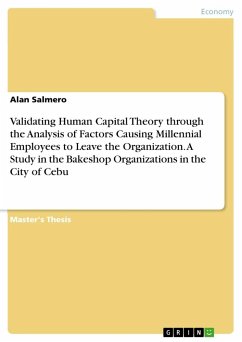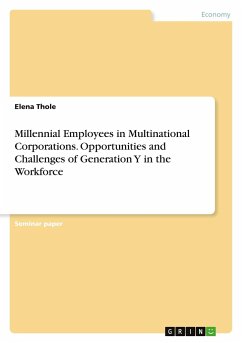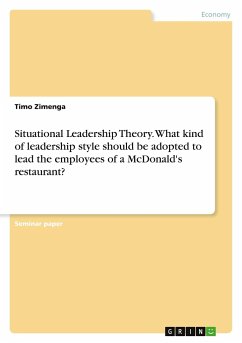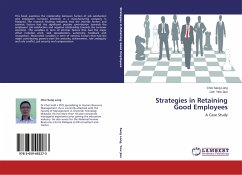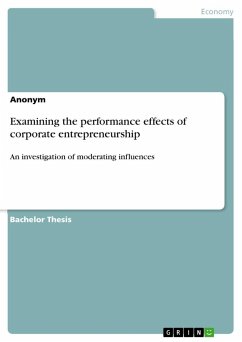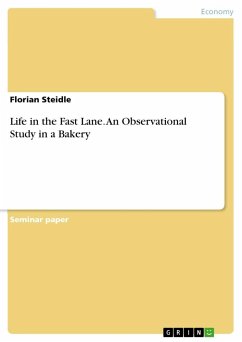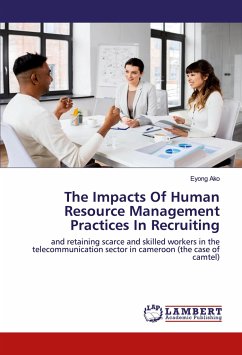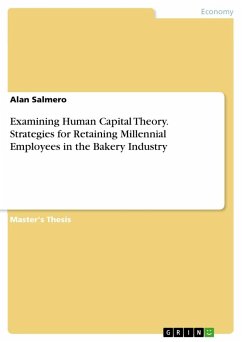
Examining Human Capital Theory. Strategies for Retaining Millennial Employees in the Bakery Industry
Versandkostenfrei!
Versandfertig in 1-2 Wochen
29,95 €
inkl. MwSt.

PAYBACK Punkte
0 °P sammeln!
Master's Thesis from the year 2022 in the subject Business economics - Business Management, Corporate Governance, , course: PhD-BA, language: English, abstract: This paper deals with the critical examination of human capital theory in the context of modern workforce dynamics, particularly focusing on millennial employees in the bakery industry. Human capital, encompassing stocks of habits, knowledge, and social attributes, is deemed the primary asset for companies, essential for achieving goals, fostering innovation, and ensuring competitiveness. Historically rooted in the works of Adam Smith ...
Master's Thesis from the year 2022 in the subject Business economics - Business Management, Corporate Governance, , course: PhD-BA, language: English, abstract: This paper deals with the critical examination of human capital theory in the context of modern workforce dynamics, particularly focusing on millennial employees in the bakery industry. Human capital, encompassing stocks of habits, knowledge, and social attributes, is deemed the primary asset for companies, essential for achieving goals, fostering innovation, and ensuring competitiveness. Historically rooted in the works of Adam Smith and Gary Becker, the theory posits that experience translates into knowledge and skills, a notion that has come under scrutiny due to its oversimplification. In the past 15-20 years, organizations have emphasized human capital, yet the integration of millennials¿who will constitute 50% of the workforce by 2020¿presents new challenges. Millennials prioritize meaningful work, high pay, and flat management structures, diverging from previous generations in their values and workplace expectations. Consequently, businesses must adapt to attract and retain millennial talent, with servant leadership emerging as a potentially effective management style. The bakery industry, like many others, faces significant issues with employee retention, particularly concerning millennials. The study highlights the need to address factors such as working relationships, benefits, work flexibility, and discipline, which influence millennial turnover. The research aims to explore the flaws and challenges within the organization, seeking to develop interventions that enhance employee retention and satisfaction. By examining the applicability of human capital theory to contemporary workforce needs, this study aspires to offer actionable insights for creating a conducive learning and growth environment for millennial employees, ultimately supporting organizational success.



